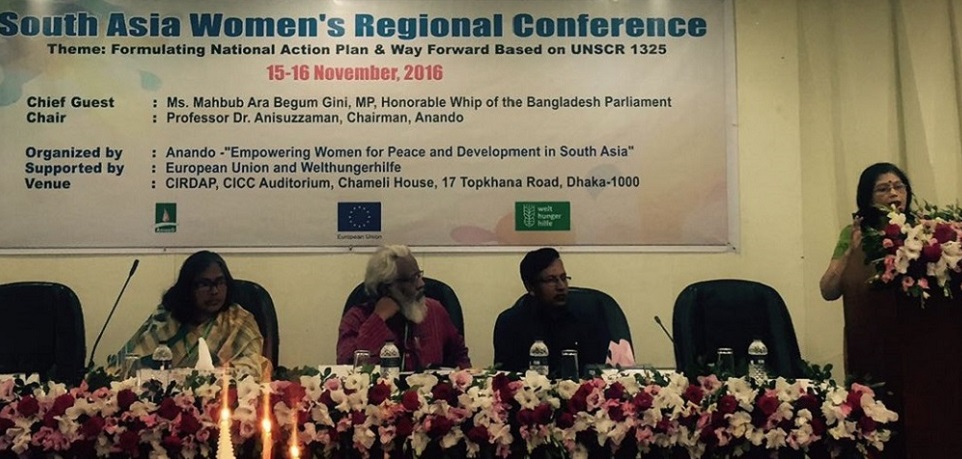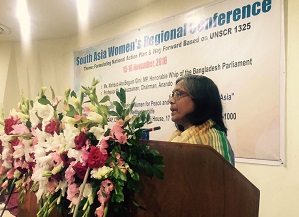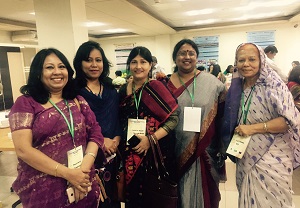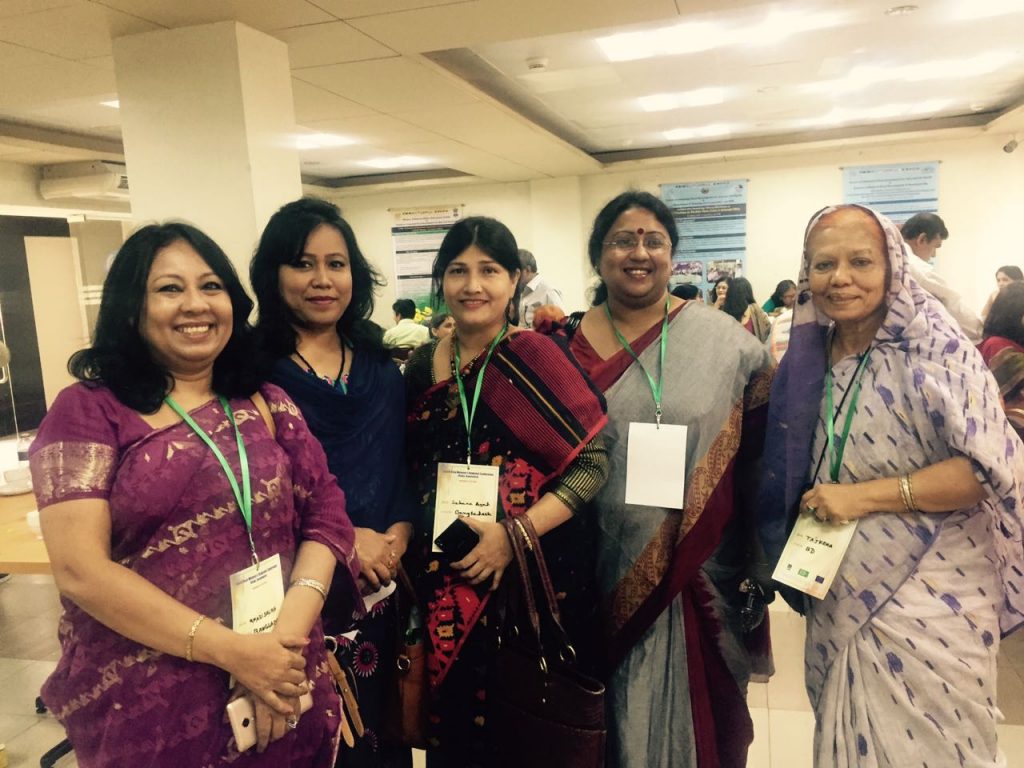
Inaugurating the two day event, Ms. Mahbub Ara Begum Gini, Hon’ble MP and Whip, Bangladesh Parliament, spoke about the need for recognising the suffering of women, particularly in remote areas. “Empowering women is critical. Voices from the grass roots need to be heard,” she said. The honourable Member of Parliament congratulated civil societies and NGOs for bringing forth matters of women, peace and security at platforms such as the ongoing conference. “The silence is what is destructive. Speaking up is critical – every woman must confront this reality equipped with awareness,” she added.

The two day event brought together delegates from Bangladesh, Nepal, India and Myanmar as well as representatives of various women networks, action groups and educational institutions from the region. Members of parliament from Nepal (Ms Deepshika Sharma Dhakal, Ms Madan Kumari Shah and Ms Ranjana Sarkar) addressed the audience on the role of women in political decision making. Also speaking at the conference were regional experts on UNSCR 1325 (Pinki Singh Rana from Nepal and Asha Hans from India) as well as human rights activist Thin Yu Mon from Myanmar.
Encouraging inclusion
The conference was organized by Anando, one of the implementing partners of the project ‘Empowering Women for Peace and Development in South Asia’, supported by the European Union and Welthungerhilfe.
Addressing the event, Maniruzzaman Miah, Executive Director, Anando, said, “Women of South Asia are more vulnerable to poverty and face serious gender-based violence that includes domestic violence as well as physical and sexual violence during conflict.” “Violence faced by women during and after conflict is neither recognized by society nor by relevant agencies,” he stressed.
Kazi Reazul Haque, Chairman, Bangladesh’s National Human Rights Commission (NHRC) laid emphasis on working together – as women and men – to dissolve differences and misunderstandings based on divisive politics, ethnic divides and religious divides. He encouraged inclusion through creating ways in which women participate in the decision making process. Sheepa Hafiza, Director of Gender, Justice and Diversity and Advocacy, spoke about the importance of questioning ‘entitlement’ and attitudes entrenched in patriarchy.
Focus on UNSCR 1325
Key issues discussed during the event include addressing concerns related to women’s peace and security in the South Asia Region (particularly India, Bangladesh and Nepal) as well as the participation of women in political spheres. The conference also aimed to bring relevant stakeholders’ to focus on the need for drafting a National Action Plan or a People’s Action Plan, effectively implementing UNSCR 1325 in South Asia.

The UN Security Council Resolution (UNSCR) 1325 is a landmark international legal framework on women, peace and security that was adopted in 2000. The resolution calls for increasing the participation of women and incorporating gender perspectives in all UN peace and security efforts. It also urges all parties to conflict to take special measures to protect women and girls from gender-based violence, particularly rape and other forms of sexual abuse, in situations of armed conflict.
The project “Empowering Women for Peace and Development in South Asia” contribute towards promoting civil society and strengthening women-led peace building initiative in alignment with UNSCR 1325 for sustainable peace in India, Bangladesh and Myanmar. The project has been implemented with an objective to empower community based groups, including women’s groups at local levels and initiate and strengthen civil society dialogue to enhance women’s capacities to take part in decision making process.
Women leaders in NE India discuss sustainable peacebuilding
First Northeast India Women Peace Congregation – Report




